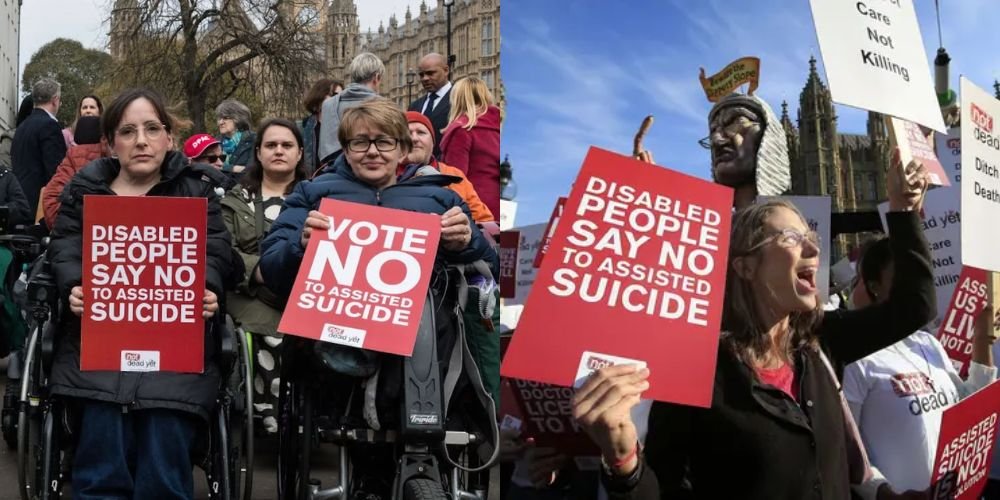In 2015, Canada made a landmark decision when the Supreme Court ruled that the country’s laws banning assisted suicide were unconstitutional.
This ruling led to the establishment of Medical Assistance in Dying (MAID), a system that allowed terminally ill patients to seek assistance in ending their lives.
The country’s stance, which was already considered progressive, has taken a dramatic turn since its inception.
Shifting Eligibility: From Terminal Illness to Mental Health

Initially, only those who were terminally ill were eligible for MAID. However, the law took a sharp turn in 2021 when the eligibility expanded, removing the requirement for terminal illness altogether.
By 2027, even individuals suffering from mental illnesses may be eligible for assisted suicide, creating a new dimension to the ongoing debate.
This shift has prompted a broad range of reactions, from praise for the country’s progressive stance on individual rights to concerns about the ethical implications of such changes.
The year 2023 saw 15,343 deaths under the MAID program, a staggering number that accounts for about one in every 20 deaths in Canada.
While the majority of these deaths (96%) were of individuals suffering from terminal conditions like cancer or Alzheimer’s, 4% were attributed to those who felt their suffering was intolerable, despite not being terminally ill.
The inclusion of mental illness in the law’s future consideration only adds fuel to the fire, sparking intense conversations about what truly constitutes suffering and whether mental health should be treated on equal footing with physical illness.
Ethical Concerns and Future Implications of MAID
Dr. Ramona Coelho, a prominent figure in Ontario’s MAID Death Review Committee, has voiced her concerns, stating that Canada has “fallen off a cliff” with its loosening of assisted suicide laws.
She argues that the shift in approach reflects a deeper cultural change, where people once met with counseling and care are now seeing assisted suicide as a viable option.
The ethical questions raised by this shift are profound, touching on issues of mental health, personal autonomy, and the duty of care by medical professionals.
As other nations like Australia, New Zealand, and Spain have followed suit with their own assisted dying laws, the global conversation on this issue continues to evolve.
The Canadian government has stated that extra safeguards will be put in place for those requesting MAID, particularly those with mental illness.
However, as the laws grow broader, the lines between assisted suicide and a societal need for better mental health support are increasingly blurred.
The expansion of the MAID program in Canada has become one of the most controversial developments in the country’s legal and healthcare systems.
As the conversation about life and death continues, the world is watching closely to see how Canada’s approach to assisted suicide unfolds and whether it will serve as a model—or a cautionary tale—for other nations.












